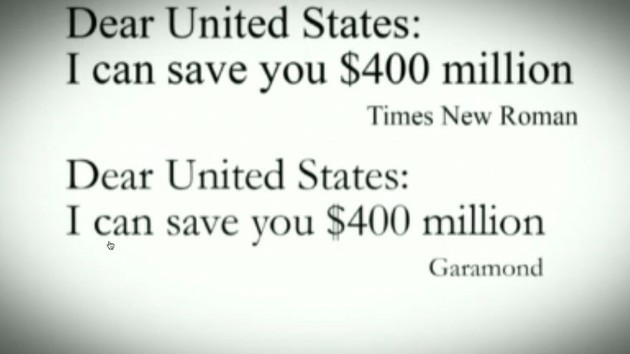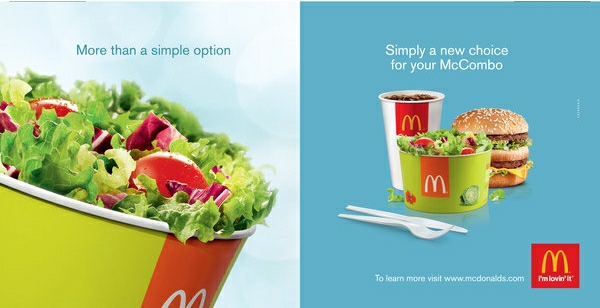Polite Negative Reviews Can Boost Sales
 How politely someone writes a review can affect how customers react. A new study, "We'll Be Honest, This Won't Be the Best Article You'll Ever Read: The Use of Dispreferred Markers in Word-of-Mouth Communication," published in the Journal of Consumer Research, gave subjects five versions of online reviews. Reviews that included nice phrases, such as, "I'll be honest," and "I don't want to be mean, but…" influenced people to possibly pay more for a product, even though the review was negative.
How politely someone writes a review can affect how customers react. A new study, "We'll Be Honest, This Won't Be the Best Article You'll Ever Read: The Use of Dispreferred Markers in Word-of-Mouth Communication," published in the Journal of Consumer Research, gave subjects five versions of online reviews. Reviews that included nice phrases, such as, "I'll be honest," and "I don't want to be mean, but…" influenced people to possibly pay more for a product, even though the review was negative.
A University of Chicago Press article further described the results:
"The study also asked participants to complete a survey evaluating the 'personality' of the brand. Results showed that the review using the marker of politeness caused the brand to be seen as more honest, cheerful, down-to-earth, and wholesome than the same review without the polite customer complaint."
Discussion Starters:
- How might you explain the study results? In what ways do they make sense to you-or not?
- Read the entire study and assess the methodology using principles in Chapter 9 of the book.
- How does this study align with principles for conveying bad news in Chapter 8?
Cute Infographic, But What's the Point?
Here's an attractive infographic, but viewers may struggle with the point. (Click for a larger image.)
How can you improve the infographic?
- Who do you think is the audience?
- What is the purpose? Specifically what would the designer like the reader to do?
- What "message title" would make the main point up front more clear?
- How is the graphic organized? What sequencing of data could be more logical?
- How could the font style be improved for easier reading?
- What text for each component would more clearly convey each point?
- How else could you improve the text?
- What design changes would you make, for example, to the colors, images, and background graphics?
Discussion Starters:
- This infographic was produced by Allstate insurance, and it is, after all, an information graphic. What are the consequences of making the main point clearer? In other words, why might Allstate choose this approach?
- What one data point in the infographic is the most convincing?
- If you're renting now, does this persuade you to get renters' insurance?
NSA's New Press Kit
The National Security Agency (NSA) published a shiny, new press kit to try to change its image. Damaged by reports of spying, the NSA's reputation could use some freshening up.
With self-aggrandizing phrases, such as, "Saving Lives," "Cybersecurity: A Team Sport," "Operating as a Responsible Citizen," and "The Mission that Never Sleeps," the NSA is trying to combat negative perceptions.
The kit also addresses "Myths" about the NSA, such as, "The NSA has agents who can arrest hackers or other cyber bad guys," and "NSA monitors the world's communications systems at all times."
Discussion Starters:
- Read the entire press kit. What are the NSA's main messages?
- Assess the text and graphics. How well do they work together? What images are most prevalent in the kit?
- Which themes or points do you find most and least convincing?
Teenager Proposes Font Change for $234m in Savings
A 14-year-old boy claimed that the U.S. government could save $234 million by switching from Times New Roman to Garamond. But The Washington Post reports, "That claim is patently false."
Suvir Mirchandani, from Pittsburgh, made a good point: a smaller or thinner font could reduce paper and toner expenses. Garamond simply takes less ink than does Times New Roman.
But experts say that the government doesn't print nearly the quantity that Mirchandani estimated in his paper, published in the Journal of Emerging Investigators. The Government Printing Office, which prints about half of the government's work, spent only $700,000 on ink last year. Mirchandani admits that he didn't get his information directly from the government in time for his paper to be published.
Second, Mirchandani failed to consider that the font change, as you see above, makes the printing harder to read. That's a real consequence of a smaller or thinner font-and who knows what problems that would cause and how much they would cost.
Discussion Starters:
- Read Mirchandani's paper. Can you identify the flaws?
- How would you describe the consequences of a font that's more difficult to read? Consider who reads government documents and for what reasons.
Facebook's "Cutesy" Annual Report
A TechCrunch article refers to Facebook's report to its partners as "cutesy" and "a playfully illustrated eMagazine." In 68 pages, "The Annual" uses a mix of executives' quotations, infographics, and photos to taut accomplishments in 2013.
Facebook also published a traditional annual report for investors.
Discussion Starters:
- What's your impression of The Annual? Analyze the audience, content choices, organization, writing style, and graphics.
- Could you see more traditional companies adopting some of The Annual's components for their own annual reports? Think of a few examples of companies and which aspects of the report might be work well for their investors or partners.
- How does Facebook, if at all, describe teens' declining use of the social network?
Did Walmart Misrepresent Employee Wage Numbers?
Walmart U.S. CEO Bill Simon presented questionable data about employee wages. During the Goldman Sachs 2013 Annual Global Retailing Conference, Simon showed a slide, "It all starts with an opportunity." A bullet point says that 475,000 employees earn more than $25,000 per year (excluding benefits).
Here's the entire presentation.
The trouble is that Walmart employs 1.3 million employees in the U.S. (2.2 million worldwide). That leaves 825,000 earning less than $25,000 a year. A Walmart representative clarified that only store employees (about 1 million) were considered for this point. Still, that leaves roughly half of them earning below $25,000 a year.
Discussion Starters:
- The U.S. CEO seemed to walk into this controversy. How could it have been avoided?
- How, if at all, does Walmart's clarification affect your view of how the company pays its employees?
Facebook Finally Admits Decline in Young Teens
 After denying reports of young teens forgoing Facebook, company officials have finally admitted the decline. On a third-quarter earnings call, CFO David Ebersman told analysts,
After denying reports of young teens forgoing Facebook, company officials have finally admitted the decline. On a third-quarter earnings call, CFO David Ebersman told analysts,
"Our best analysis on youth engagement in the US reveals that usage of Facebook among US teens overall was stable from Q2 to Q3, but we did see a decrease in daily users, specifically among younger teens."
This drop seemed to shake investors' confidence. The stock dropped 2% on the news.
According to the CNET article, Ebersman also admitted that it's difficult to determine teen activity becauses this group often fabricates dates of birth.
Earlier reports claimed that Facebook isn't cool now that mom and dad (and grandma) have accounts. Some statistics show that young teens are flocking to sites such as Twitter and Tumblr instead.
Discussion Starters:
- How do you think Facebook made the decision to stop denying reports? What do you think were the deciding points?
- What's your view of Facebook's claim about fabricated birth dates? What are the responsibilities of users, the company, parents, and perhaps other groups?
McDonald's Offers Healthier Menu Items
After much criticism of its unhealthy food and advertising targeted towards children, McDonald's is offering more options for people looking for healthy food.
In 20 of its major markets, accounting for 85% of its total sales, McDonald's will revamp the menu. Costing $35 million through 2020, the move may pave the way for other fast-food chains. This is Bill Clinton's hope, as he said in a press release about the initiative, which is part of the Clinton Global Initiative in New York:
"If we want to curb the catastrophic economic and health implications of obesity across the world, we need more companies to follow McDonald's lead and step up to the plate and make meaningful changes."
CEO Don Thompson explained the opportunity:
"This is a particular opportunity to partner with the Clinton Foundation and the alliance to leverage our scale and size and marketing prowess to be able to influence more purchases of fruits and vegetables."
On the "Nutrition Choices" page of McDonald's website, the company posted a progress report showing its "National Nutritional Commitments." For each, the report describes the company's "journey."
Discussion Starters:
- Read McDonald's progress report. Who are the primary and secondary audiences? What are the company's objectives? How is it organized? How does the company use graphics to highlight main points?
- Analyze how data is presented in the report. How does the company use quantitative information to prove its points? In what ways is the presentation successful, and where does it fall short?
Fast-Food Workers Strike over Pay
The fast-food industry has been under fire for paying low wages. The website "Fast Food Forward," asks people to sign a petition:
"We can't survive on $7.25!
"In America, people who work hard should be able to afford basic necessities like groceries, rent, childcare and transportation.
"While fast food corporations reap the benefits of record profits, workers are barely getting by-many are forced to be on public assistance despite having a job.
"Raising pay for fast food workers will benefit workers and strengthen the overall economy."
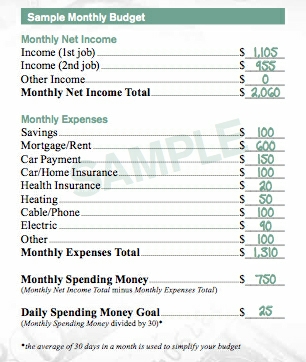 In July, McDonald's mistakenly publishing Practical Money Skills, a budgeting journal for employees. It was a nice idea, but the tool has made obvious that employees have a tough time living on McDonald's wages alone. A Mother Jones article criticized the advice:
In July, McDonald's mistakenly publishing Practical Money Skills, a budgeting journal for employees. It was a nice idea, but the tool has made obvious that employees have a tough time living on McDonald's wages alone. A Mother Jones article criticized the advice:
"The most practical tip: In order to obtain a living wage working at McDonald's 35 hours per week (monthly income: $1,105), get a second job. Least practical facet: as MSNBC's Maria Perez notes, it "leaves out necessary expenditures like food, child care, clothes and gas."
Another Mother Jones writer asks that we "give McDonald's a break." The row for "Income (2nd job)" assumes a dual-income family with two working adults.
A New York Times opinion from The Executive Board explains how the minimum wage has lagged behind inflation:
"As measured by the federal minimum wage, currently $7.25 an hour, low-paid work in America is lower paid today than at any time in modern memory. If the minimum wage had kept pace with inflation or average wages over the past nearly 50 years, it would be about $10 an hour; if it had kept pace with the growth in average labor productivity, it would be about $17 an hour."
Fast-food employees are paid $9, on average.
The New York Times piece also critcizes executive pay:
"At some point, as strikes continue, well-paid executives in low-wage industries will have to confront the fact that low worker pay is at odds with their companies' upbeat corporate images and their self-images as top executives. (The chief executives of McDonald's and Yum Brands, which owns Taco Bell, Pizza Hut and KFC, are among the nation's highest-paid corporate leaders.)"
An International Business Times infographic summarizes some of the data well:
A Bloomberg Businessweek article reported that wage increases will hurt already low fast-food margins. Profit margins are particularly slim for franchised restaurants, which set their own pay rates. The article compares company-owned Burger Kings, which can garner margins of over 10%, to a franchised store, which may operate at only 2%. For franchisees, the cost of higher wages may not easily be offset by raising menu prices. However, the writer concedes,
"Much of the public debate, however, is focused on raising wages to considerably less than the much-hyped $15 an hour. Wicks-Lim and 99 other economists signed a petition in July to raise the federal minimum wage to $10.50. They say the increase in costs for restaurants would equal about 2.7 percent of sales. Wicks-Lim adds that companies could then make up the difference through price increases (say, a nickel more for a burger), reduced employee turnover, productivity gains, and slower raises for the highest-paid employees."
Discussion Starters:
- Find research to support both sides of the issue. What credible sources do you find? What are the major arguments on each side?
- What examples of fallacies do you find in the arguments?
- What's your view? Should fast-food restaurants pay more? How much?
Sloppy Charts
Business Insider writers seem to be enamored with unclear charts-and don't do a great job describing them. With the headline, "These Are The Charts You're Going To Be Seeing In Powerpoints And Mobile For The Next Year," the article shows 13 charts, none of which follow business writing principles.
The first one shown, about mobile data traffic, is pretty, but makes it difficult to distinguish the data and draw any meaningful conclusions except that things are going up (for which we probably don't need a chart).

A skeptic might ask the following:
- Is mobile service-provider Ericcson the most objective source for this data?
- What are the actual numbers for each year? This is impossible to see.
- What are the different data types referenced in the chart heading? Which is yellow, blue, etc.?
- What's an extabyte, anyway?
- How well can people distinguish aqua blue from green, and why are they next to each other? I'm guessing that people who are color blind can barely distinguish these line sections.
- Is the last year 201?
The article text is equally problematic. Note the errors:
Every year, Ericsson puts together a massive report on global mobile usuage trends.
The charts and data in this report then proliferates through Powerpoints and slide decks around the world.
So, get a jump start on everyone else in the industry and…
Discussion Starters:
- What other issues do you see with this chart?
- Review the 12 other charts. How they can be improved to meet business writing standards?
Does Texting Hurt Grammar?
Finally, an infographic that incorporates cats. A study by Onlinecollege.org found that the more students text, the more their grammar may be affected. But some of the results are dubious.
The good news is that 86% of middle-schoolers believe that good writing skills are important in life, and only 11% think that texting negatively impacts their writing.
 But the survey sponsors seem concerned with the 50% who say that they don't use proper grammar or punctuation when writing texts or IMs. Also, the more teens receive "techspeak," the more they use it.
But the survey sponsors seem concerned with the 50% who say that they don't use proper grammar or punctuation when writing texts or IMs. Also, the more teens receive "techspeak," the more they use it.
So what? I'm not sure we can reasonably conclude, as the sponsors have, that texting hurts grammar.
Discussion Starters:
- Review the full infographic. Do you draw the same conclusions as the study sponsors do?
- Look at the graphics representing 50, 11, and 86%. What issues do you notice?
- How, if at all, do you think texting and IM have affected your use of proper grammar and punctuation?
Confusing Column Chart
With the title, "Two Charts Which Show That April Was A Horrible Month For American Manufacturing," I would expect to see clear, easy-to-interpret charts. This one is not.
Here are Business Insider's introductory text and the chart:
"If there is an American manufacturing renaissance, it certainly appears to have stalled in April.
"From the just-released ADP report, a chart which shows that manufacturing actually lost jobs in the month!"
Granted, this chart is very colorful, and overall, the numbers generally decline since November 12. But how can the chart be improved? Consider the following:
- Including a message title
- Adding data labels
- Choosing a different (or supplemental) chart type
- Highlighting most relevant data graphically and numerically
The purpose of the chart is to show that manufacturing lost jobs in April. Do we know exactly how many-both as a percentage and raw number? This would seem to be an important part of the argument.
BP Skirts Wikipedia Rules to Edit Content
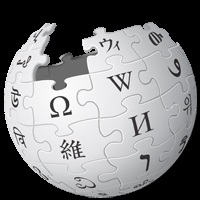 British Petroleum is accused of rewriting 44% of the company's Wikipedia entry, particularly about its environmental record. It's bad timing, as BP prepares for an April 5th federal hearing about potentially billions of dollars the company could owe in a class-action suit about the 2010 Gulf of Mexico oil spill.
British Petroleum is accused of rewriting 44% of the company's Wikipedia entry, particularly about its environmental record. It's bad timing, as BP prepares for an April 5th federal hearing about potentially billions of dollars the company could owe in a class-action suit about the 2010 Gulf of Mexico oil spill.
Although the contributor explains his interests on his Wikipedia user page, "Arturo" has more influence than people believe is appropriate. On his page, Arturo writes,
"I have established this account to help improve BP-related articles in line with Wikipedia standards and guidelines. In the interest of full transparency, I chose 'Arturo at BP' as my username so that my affiliation with BP is abundantly clear to all parties I may interact with on Wikipedia. Per WP:ORGNAME, I believe that this username is appropriate, and I should point out that I will be the only person to use this account.
"Out of respect for guidelines on conflict of interest and the importance of a neutral point of view, and in recognition of the ongoing debate regarding companies' involvement on Wikipedia, I will only be editing Talk pages and will not make any edits to encyclopedia articles. My primary goal in being active on Wikipedia through this account is to improve the overall quality of BP-related articles in line with Wikipedia guidelines."
True, Arturo does not directly edit Wikipedia pages about BP, but he does contribute content via his "Talk" page on Wikipedia. Apparently, this content is approved by BP executives. One logical concern is why Wikipedia editors are simply copying and pasting Arturo's entries.
On an editorial Wikipedia page, comments are flying about whether BP's actions are appropriate:
"A paid editor from BP is writing up material for the BP article and for the BP environmental section in particular.
"He does pay attention to the letter of the rules, but I don't think it is anywhere near the spirit, e.g. he checks with his higher-ups before responding to any questions."
Discussion Starters:
- What's your view of BP's contributions: fair play, crossing a line, or something else?
- How, if at all, does this news affect your image of Wikipedia as a reliable source?
Study: How Twitter Sentiment Compares to Public Opinion
We should be careful about drawing conclusions about overall public opinion based on tweets, according to a recent Pew study. Sometimes reactions on Twitter are more politically liberal, while at other times, they are more conservative. Often, they are more negative.
For example, when a California law last year banning same-sex marriage was found to be unconstitutional, Twitter conversations were much more positive (46%) than negative (8%). These results contrast sharply with a general opinion poll showing 33% to be positive and 44 to be negative.
Reactions to the presidential election also ran more positively on Twitter, with most users supporting President Obama. However, reactions to the president's State of the Union address were far more negative on Twitter than in the general population.

One explanation of these differences and inconsistencies is the small percentage of people who get news from and participate on Twitter. Only 13% of adults read Tweets, and only 3% regularly or sometimes tweet or retweet news. Users are not a representative sample of the U.S. population; for example, Twitter users include those under 18 and people outside the United States, while opinion surveys exclude both groups.
Discussion Starters:
- What else could account for more negativity on Twitter?
- Research Twitter demographics. What, if any, other conclusions can you draw about its users?
Yale Sex Survey Debunked
Who can resist a compelling headline? "Nine Percent of Yale Students Surveyed Say They've Accepted Money for Sex," an article in The College Fix, didn't give us the full picture. Skeptics might ask questions such as, "Who was surveyed and under what conditions?" and "How many people were included in the sample?"
As it turns out, the survey was taken during a "Sex Weekend" workshop for participants to "learn about masochistic sexual practices such as those depicted in 50 Shades of Grey," according to a Yale Daily News reporter. Does this group represent the typical Yale student?
How many students at the workshop completed the survey is unclear. The Yale Daily News reports that 55 students attended the workshop, but Business Insider claims that only 40 students were asked to complete the survey. Using Business Insider's numbers, four students said they were paid for sex.
Bottom line: Don't believe everything you read.
Discussion Starters:
- What would be a better way to administer a survey to Yale students to get a more representative sample? What categories of students would need to be included?
- How many responses would you consider before making a claim about students' sexual behavior?
Dr. Oz's Advice "Borders on Quackery"
Dr. Mehmet Oz was propelled into stardom by his popular appearances on The Oprah Winfrey Show. Now, he has his own television show, which seems to be an avenue for promoting strange products.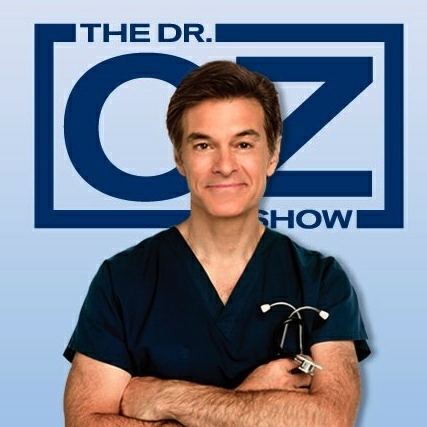
For business communication students, the example reminds us how important it is to check facts. Does the board-certified cardiothoracic surgeon not review research of the products he promotes?
Slate describes Dr. Oz's enthusiasm for garcinia extract, which he says will finally help people "burn fat without spending every waking moment exercising and dieting":
"He then told his audience about a 'breakthrough,' 'magic,' 'holy grail,' even 'revolutionary' new fat buster. 'I want you to write it down,' America's doctor urged his audience with a serious and trustworthy stare. After carefully wrapping his lips around the exotic words 'Garcinia cambogia,' he added, sternly: 'It may be the simple solution you've been looking for to bust your body fat for good.'"
But garcinia cambogia has been studied for more than 15 years, and a JAMA article calls its anti-obesity results no better than a placebo. One of the study's authors, Edzard Ernst, said the product could have negative gastrointestinal effects and told Slate, "Dr. Oz's promotion of this and other unproven or disproven alternative treatments is irresponsible and borders on quackery."
Educated at Harvard and the University of Pennsylvania, Dr. Oz presents himself as a credible source, but research does not support what he promotes. Slate compares more of Dr. Oz's recommendations to the "best available research." In most cases, his advice (e.g., to take zinc, Vitamin D, and DHA) doesn't match up. The so-called "Oz Effect"-people spending lots of money on products presented on his show-can be dangerous. As Ernst says, "Using bogus treatments for serious conditions may cost lives."
Discussion Starters:
- Watch some of Dr. Oz's show. In addition to his status as a doctor, how else does he present himself as a credible promoter of these products. Pay attention to his language, dress, mannerisms, etc.
- Why do people so easily believe Dr. Oz? What is the audience's responsibility in the "Oz Effect"?
Google Puzzles Build Search Skills
Want to hone your Googling skills? A Google-a-Day puzzle tests web search skills by presenting daily challenges for users.
Winding up the year on December 31, today's puzzle is multi-layered for the diligent searcher. To tackle this question, we would first need to know for which play Neil Simon won a Pulitzer. Then, we can figure out the actor who won a Tony. Finally, we can ferret out the actor's older sister. Not too complicated, but as with any problem to be solved, breaking down the question is important before the searching can begin.
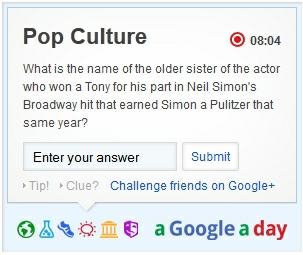
Assignment Ideas:
- Try a few of the puzzles. How did you do? Compare your search process with those of your classmates. What strategies did you use to find the correct answer, and how successful were you?
- Write a few puzzles of your own, and have your classmates try to find the answers. Was the question clear? How can you make it clearer to avoid ambiguity?
Beware of "Exploding" Studies

Twice in two weeks I've read a similar headline about a Northwestern University study: "Study Explodes the Myth of Internet-Based Information Overload." Authors of these articles should be mindful of the implications of research-and look more carefully at the methodology.
The study, involving a mere seven focus groups of 77 participants on vacation in Las Vegas, asked people about information they receive through the web and other media sources and how they feel about it. A relatively small study that doesn't look at behavior should be considered cautiously. Eszter Hargittai, lead author of the study, drew this conclusion:
"There's definitely some frustration with the quality of some of the information available. But these frustrations were accompanied by enthusiasm and excitement on a more general level about overall media choices."
Fair enough. But articles such as Social Media Today's is not exactly in line with the study's reach and impact. Northwestern University's own descriptions seem more appropriate:
"'Information overload' may be an exaggerated way to describe today's always-on media environment. Actually, very few Americans seem to feel bogged down or overwhelmed by the volume of news and information at their fingertips and on their screens, according to a new Northwestern University study."
"Most of the participants said television was their most used form of media, followed closely by websites. When asked how they felt about the amount of information available to them, few mentioned feeling overwhelmed or that they suffered from 'information overload.'"
On the other hand, the Social Media Today article raises a good point about exaggeration on the other side of the argument:
"Listen to enough hysterical warnings and dire forecasts and you'd think that information overload is leading us to some kind of bleak, post-apocalyptic future. In an Advertising Age column he wrote back in 2007, Edelman Senior VP Steve Rubel said, 'A crash is coming, folks. But this time it's not financial-it's personal.' The attention crisis, he said, is an epidemic. "There's no more room at the inn. People will cut back."
Perhaps we can learn lessons about both sides of the debate.
Discussion Starters:
- What's your own view about "information overload"?
- What could have been a better headline for the story in Social Media Today?
Harvard Responds to Cheating Scandal
Harvard University is investigating whether students wrongly collaborated and plagiarized each other's work on a take-home exam in a Government class last spring. Almost half of the 279 students' exams in "Government 1310: Introduction to Congress" are under further review. The course faculty member, Professor Matthew B. Platt, noticed similar responses and drew attention to the possibility of widespread cheating.
The Harvard Crimson posted an image of the exam instructions:
The Crimson quoted students who were frustrated by the lack of support in preparing for the exam:
"'Almost all of [the students at office hours] had been awake the entire night, and none of us could figure out what an entire question (worth 20% of the grade) was asking,' the student wrote. 'On top of this, one of the questions asked us about a term that had never been defined in any of our readings and had not been properly defined in class, so the TF [teaching fellow] had to give us a definition to use for the question.'
"That same student also expressed frustration that Platt had canceled his office hours the morning before the exam was due. In a brief email to the class just after 10 a.m. on May 3, Platt apologized for having to cancel his office hours on short notice that day due to an appointment."
An article in the Harvard Gazette included a response by the school dean:
The article also quoted university President Drew Faust:
"These allegations, if proven, represent totally unacceptable behavior that betrays the trust upon which intellectual inquiry at Harvard depends. We must deal with this fairly and through a deliberative process. At the same time, the scope of the allegations suggests that there is work to be done to ensure that every student at Harvard understands and embraces the values that are fundamental to its community of scholars."
While the investigation is under way, Harvard is stepping up communications around academic integrity. The College Committee on Academic Integrity also will make recommendations to the faculty to reinforce school policies, and the committee may propose new policies or an honor code.
Discussion Starters:
- With the information you have, what's your view of the situation? For example, are the instructions clear? Do you understand why students could have shared answers during the take-home exam?
- What is the definition of plagiarism? How might that apply in this case?
Who Topped Olympics Social Media Conversations?
Using data from 150 million sources, Salesforce Radian6 tracked social media conversations about the Olympics on Twitter, Facebook, YouTube, and others sites.
The chart shows social media mentions of the top medal-winning countries during the second week of the Olympics. Consistent with the number of wins in the actual games, the United States ranks first.
From a business communication perspective, the chart is rather easy to understand, but it can be improved. Also, at least one description of the chart is questionable:
"But Great Britain, fourth in the medal standings, surges to the second spot in social media mentions."
For participants, the press, and others writing about the games, the International Olympic Committee published social media guidelines. The guidelines encourage social media participation and explain acceptable uses of photographs and trademark symbols. As expected, the guidelines warn writers about violations of policy:
"The IOC will continue to monitor Olympic on-line content to ensure that the integrity of rights-holding broadcasters and sponsor rights as well as the Olympic Charter is maintained. The IOC asks for the support of all participants and other accredited persons in halting any ambush activity or any sites engaged in conduct which is offensive to or adversely affects the goodwill associated with the Olympic Games and the Olympic Movement. The IOC asks that participants and other accredited persons discovering unauthorised content, please report it immediately to www.olympicgamesmonitoring.com."
As we know from some examples, not everyone respected these guidelines.
Discussion Starters:
- In what ways can the chart be improved to improve readability and accuracy?
- What is potentially questionable about the article quote, above, about Great Britain? How should this be fixed?
- How effective are the social media guidelines? What, if anything, would you suggest that the International Olympic Committee change for next year?







